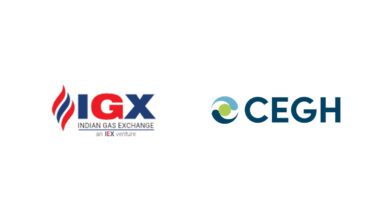A self-certified declaration of a commercial oil or gas discovery is all that is now needed by a company to get statutory recognition for a hydrocarbon find after the upstream regulator DGH overhauled approval processes. Following up on its announcement of last month, Directorate General of Hydrocarbons (DGH) released ‘Guidance Document’ for online submission of various documents.
“This document is prepared to guide the E&P (oil and gas exploration and production) contractors for submission of Production Sharing Contract (PSC),” DGH said.
It allows self-certified documents for requirements like bank guarantee to the appointment of auditor and relinquishing an area or a commercial oil and gas discovery is made. It limits the requirement of statutory approvals to only extension of contracts, sale of stake and annual accounts.
DGH, the government’s technical arm overseeing upstream oil and gas production, said procedures and processes for oil and gas blocks awarded under nine bids round of New Exploration Licensing Policy (NELP) and pre-NELP blocks are being simplified and standardised.
While state-owned Oil and Natural Gas Corporation (ONGC) and Oil India Ltd (OIL) produce two-third of India’s oil and gas from blocks or areas given to them on a nomination basis, the remaining output is from pre-NELP and NELP blocks.
The pre-NELP blocks include Panna/Mukta and Tapti oil and gas fields in western offshore and Ravva field in the KG basin.
But the biggest of oil and gas discoveries outside of the nomination acreage have happened in the blocks awarded under NELP since 2000. These include Reliance Industries Ltd’s eastern offshore KG-D6 block and NEC-25. ONGC too has significant finds in NELP blocks.
DGH undertook a review of processes of various approvals and submission of documents under Production Sharing Contracts (PSC) for NELP and pre-NELP blocks.
As many as 37 processes and procedures were required to be followed by a firm exploring oil and gas in a block awarded under NELP or pre-NELP rounds. These have now been cut to just 18, according to DGH.
Self-certification has been allowed in half of them, including for declaring a discovery as commercially viable as well as on requirement of submission of quarterly reports, insurance and indemnity and bank guarantees.
No approval will be needed for any of these processes, DGH said. DGH has allowed deemed approval on expiry of 30 days of submission of self-certified documents on the annual work programme, appraisal and field development plan or its revision.
Prior approval of the block oversight committee, DGH, or the Oil Ministry will be required only in cases where extension of the contract or exploration phase is to be granted or the contractor is selling or exiting the block.
End-of-year accounting statement, abandonment plan and cost of unfinished work programme too would need prior approval. Further, submission of all documents will be made online as per the given templates, it added.
India in 2016 migrated to an open acreage licensing regime where companies can choose the area, they want to explore rather than the government demarcating it. The new regime provides much easier compliance but the legacy contracts had continued to have a large compliance burden.
The compliance requirement of NELP had also led to controversies such as allegations of gold-plating of the cost and over-estimation of reserves in KG-D6. Now the processes have been streamlined.













